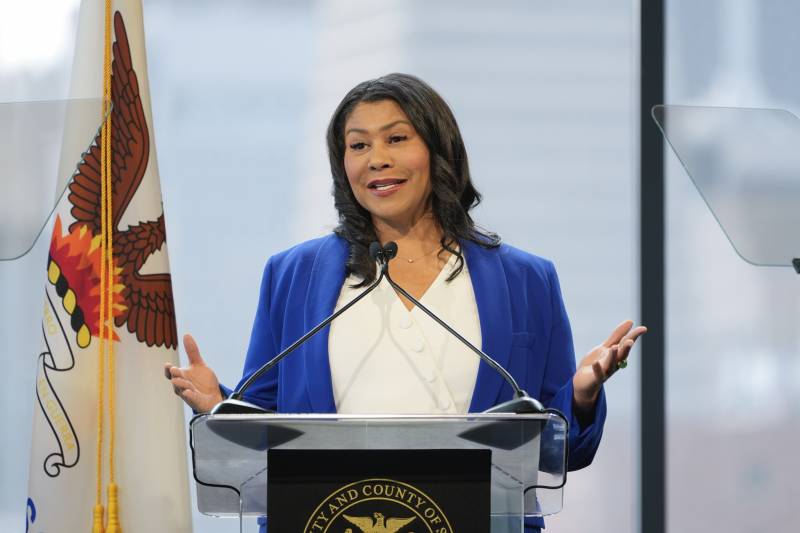A state report released last October criticized city rules for making new housing production slower and costlier. Even if some of those local rules are changed — obstacles remain — including high construction costs.
The announcements come as Breed seems poised to score several victories in Tuesday’s election, including the likely passage of propositions C, E and F, which she sponsored. Though not all votes have been counted, all three measures were leading by more than five percentage points as of Thursday afternoon.
Proposition C, if passed, would provide the new owners of converted office buildings with a one-time exemption from the city’s real estate transfer tax. As of this writing, it currently leads with nearly 54% of the vote.
Proposition F would require residents who receive city benefits to submit to drug screenings and treatment programs if they are suspected of having a dependence on illegal drugs or risk losing their benefits. Critics say coerced participation is not likely to lead to successful treatment — and vulnerable people could lose their housing if cut off from assistance programs.
During her speech, the mayor thanked residents for their support of those propositions.
“We will roll out 400 automated license plate cameras at 100 intersections across the city this month. Thanks to the voters for approving Proposition E on Tuesday,” Breed said. “We will be installing new public safety cameras in high-crime areas, deploying drones for auto theft, car break-ins and other crimes.”

